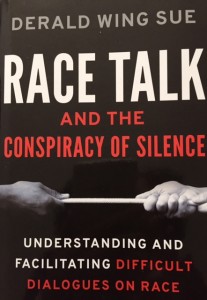The Universal Declaration of Human Rights
Multicultural & Social Justice Counseling Competencies (2016)
Racial biases, assumptions, and stereotypes are all potentially present whenever there are interracial encounters~
Purpose:
- Lighting a fire and focusing on the empowerment of silenced and marginalized voices
- Awareness of issues in Multicultural Counseling Competencies and Social Justice
- Awareness of appropriate and effective service delivery to racial/ethnic minority clients
- Awareness of the future directions of Multicultural Counseling, Practice and Research
Importance of Cultural Competency & Responsiveness in Counseling
The United States is becoming increasingly diverse in terms of ethnic composition. According to the U.S. Census data (2010), people who identified as Black made up 13.6 percent of the total U. S. population, and 37. 6 million foreign-born individuals called the United States their home. It is projected that by 2050, Blacks would constitute 15 percent of the nation’s total population (65.7 million). It is also expected that by 2050, Hispanics will represent 24.4 percent of the U. S. population.
Given this changing landscape, it is important that counselors and other mental health providers become more culturally aware and sensitive of their cultural norms, beliefs, biases, values, in order to provide culturally effective services and interventions to their clients of diverse cultural backgrounds.
D. W. Sue, Arrendondo, & McDavis (1992) have offered the characteristics of effective therapists working with racial/ethnic minority clients:
- a). Awareness of own biases, assumptions, stereotypes and worldviews.
- b). Awareness of the worldview of their culturally diverse clients
Reference– Sue, D. W., Arredondo, P., & McDavis, R. J. (1992). Multicultural competencies/standards: A call to the profession. Journal of Counseling & Development, 70, 477-486.
______________________________________________________________
On Multicultural Counseling: “As a clinician of Color, I am deeply connected to social justice and multicultural issues in counseling. The emergence of the multicultural competence movement in counseling has been the direct result of the growing recognition of the negative psychological consequences and impact of oppression and racism in the lives of People of Color. More recently, many counselors have been working to identify and utilize more effective interventions to address these issues in multicultural counseling and bring about social change. The cornerstone of my practice has been to address these issues in my work with clients from diverse backgrounds, as well as in my role as supervisor and educator in the field of counseling.” – Dr. Chioma Anah, 2012.
Anah, C. (2017). The legacy of king: Counselors as advocates for social justice. Compass Points, 9(3), 7-8. MCA Quarterly Newsletter, Winter 2017.
Anah, C. (2016). Racial microaggressions: Consequences of “assumption of criminality” on African American men. Compass Points, 9(2), 6-7. MCA Quarterly Newsletter, Fall 2016.
***Therapists who are unaware of their own cultural biases and who fail to understand their client’s own cultural worldview may block the process of building a therapeutic rapport with their clients, leading to premature termination of therapy.
_____________________________________________________________________________
RESOURCES FOR WHITE PEOPLE WHO WANT TO BE TRUE ALLIES FOR BLACK PEOPLE
https://www.vox.com/2016/7/8/12128506/police-shootings-support
Your Guide On How to Support Black People After Incidents of Police Violence – Everyday Feminism
ADDITIONAL RESOURCES FOR COUNSELOR EDUCATORS WHEN TEACHING DIVERSITY & SOCIAL JUSTICE IN COUNSELING COURSES
Multicultural and Social Justice Counseling Competencies: Practical applications in counseling
Books on Multicultural Issues in Counseling:
*Counseling for Multiculturalism and Social Justice, 4th Edition by Manivong Ratts and Paul Pedersen
http://ct.counseling.org/2015/04/behind-the-book-counseling-for-multiculturalism-and-social-justice/
* Culturally Responsive Counseling with Latina/os by Patricia Arredondo, Maritza Gallardo-Cooper, Edward Delgado-Romero, and Angela Zapata
Important Books to Read on Race/Multicultural Issues
Disillusioned: Five Families & The Unraveling of America’s Suburbs by Benjamin Herold.
The Conversation: How Seeking & Speaking the Truth About Racism Can Radically Transform Individuals & Organizations by Robert Livingston.
Go Back to Where You Came From: And Other Helpful Recommendations on How to Become American by Wajahat Ali.
Disintergration: The Splintering of Black America by Eugene Robinson Book Review by New York Times
‘Disintergration”- Book Review by Lawrence Jackson- Emory University
* Race Talk And The Conspiracy Of Silence: Understanding And Facilitating Difficult Dialogues On Race by Derald Wing Sue (2015).

_______________________________________________________________________________

ISBN: 978183997833
Anah, C. (2024). Art Therapy for Racial Trauma, Microaggressions and Inequality: Social Justice and Advocacy in Therapy Work. (Jessica Kingsley Publishers).
Social Justice is integral to professional counseling:
Multicultural competency is a necessary component to social justice (Ratts, 2009)
Social Justice is defined as, “A process of acknowledging systemic societal inequities and oppression while acting responsibly to eliminate the systemic oppression in the forms of racism, sexism, heterosexism, classism, and other biases in clinical practice both on individual and distributive levels” (Odegard & Vereen, 2010, p.130)
“Social justice is most fully understood and realized as an inclusive enterprise, in which people come together to work for the common good by transforming for social organizations and processes that contribute to power inequities, oppression and marginalization.” (Caldwell & Vera, 2010, p. 164).
References
Anah, C. (2024). Art Therapy for Racial Trauma, Microaggressions and Inequality: Social Justice and Advocacy in Therapy Work. Jessica Kingsley Publishers, London, England.
Caldwell, J. C., & Vera, E. M. (2010). Critical incidents in counseling psychology professionals’ and trainees’ social justice orientation development. Training and Education in Professional Psychology, 4(3), 163-176.
Odegard, M. A., & Vereen, L. G. (2010). A grounded theory of counselor educators integrating social justice into their pedagogy. Counselor Education & Supervision, 50, 130-149.
Ratts, M. J. (2009). Social justice counseling: Toward the development of a fifth force among counseling paradigms. Journal of Humanistic Counseling, Education and Development, 48, 160-172.
“It is incumbent upon the counselor to recognize the cultural meaning of phenomena assigned by the client and to translate cultural knowledge into meaningful practice that results in client empowerment.” (Day-Vines et al., 2007, p. 402).

